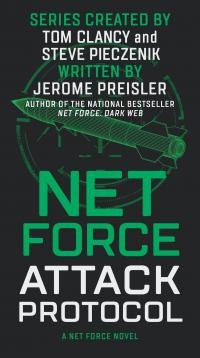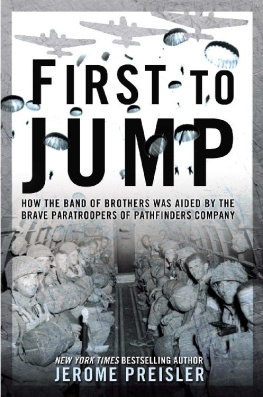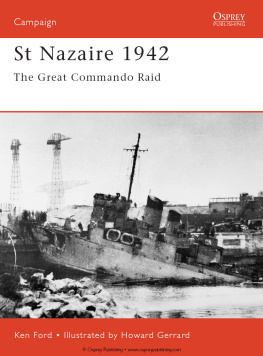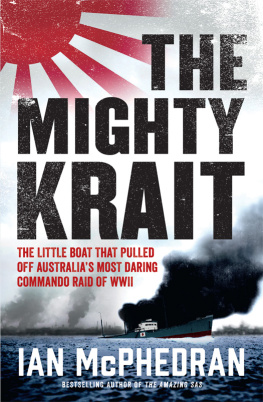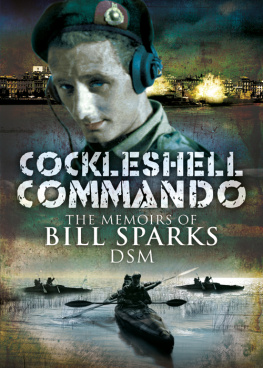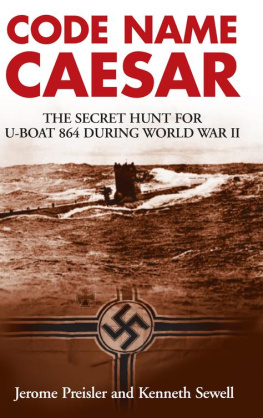Contents
Guide
Copyright 2020 by Jerome Preisler
All rights reserved. No part of this publication may be reproduced or transmitted in any form or by any means electronic or mechanical, including photocopy, recording, or any information storage and retrieval system now known or to be invented, without permission in writing from the publisher, except by a reviewer who wishes to quote brief passages in connection with a review written for inclusion in a magazine, newspaper, website, or broadcast.
Regnery History is a trademark of Salem Communications Holding Corporation
Regnery is a registered trademark of Salem Communications Holding Corporation
ISBN 978-1-62157-679-2
ebook ISBN 978-1-62157-761-4
LCCN: 2020011270
Published in the United States by
Regnery History
An imprint of Regnery Publishing
A Division of Salem Media Group
300 New Jersey Ave NW
Washington, DC 20001
www.RegneryHistory.com
Cover design by John Caruso
Cover painting by Tom Freeman
Books are available in quantity for promotional or premium use. For information on discounts and terms, please visit our website: www.Regnery.com.
For my wife, Suzanne
In a word, I would not take any risk of being entangled upon the river, like an ox jumped half over a fence, and liable to be torn by dogs, front and rear, without a fair chance to gore one way or kick the other.
Abraham Lincoln
PROLOGUE BILL COONS
Chicago, 1847
L ater in life, Will Cushing would insist his name was Bill Coons. Though it was not the boys real name, his older brother Alonzo sometimes called him that with affection. And Lon was his hero.
The nickname originated long before the Cushings lived in Chicago. When Will was barely old enough to walk, his family lived near a narrow river crossing where the Cushing boys would go diving in the summer heat. Raccoons were plentiful there, stealing right up to the cabin, always snooping around where they didnt belong. Like Will, nothing scared them offnot fire, not loud noises, nothing. Even the smallest cubs were unafraid of the water, swimming with playful ease as they searched for fish and crabs.
On one warm summer day, Will had watched his brothers leap bare-chested off the footbridge. Impulsively he copied them, thinking he would swim the way they swam, the way the raccoon cubs swam, as if born to it.
But the moment he hit the water, he felt himself going under. The harder he struggled to stay afloat, the deeper he sank. He flailed, kicked, and splashed. Water gushed into his nose and mouth, filling his throat so he couldnt breathe. If not for Michael, the eldest of the three brothers, he would have drowned. But Michael swam over in a hurry, got hold of him, and brought him over to the riverbank. He gasped for air in the weeds that rose almost to his chin, Michael and Lon slapping him between the shoulder blades to clear his throat and lungs.
When their mother heard the commotion from the cabin and rushed out to find Will coughing up water, she was both relieved and upset.
Relieved because she could tell he would be okay. Upset because it was not the first time that he had acted without regard for his safety and almost been seriously hurt or worse, she thought.
Bill Coons, like the raccoons where the Cushings once lived, had a habit of getting into things, sometimes way over his head.
Now the cabin and the river were far away. The coons, too. Here in the city of Chicagothe third place Will had called home in as many years of lifethe dangers of following his impulses were different. He was always under adult supervision and had very few opportunities to indulge his boundless curiosity.
But today, unexpectedly, he had a chance. His half-sister Rowena was babysitting him when he noticed she had left his side, either to fix a meal or to tend to Mother in her sickbed. The rooms his family occupied were tiny and boxlike, and the other tenants were mostly sailors and shipyard workers, men whose rough, booming voices were heard through the walls at all hours. None were married or had children, and Will was without a single playmate. Bored and restless, he slipped out from under Rowenas nose and wandered off.
A slight, blue-eyed tot, he could not have explained why he took his fathers stovepipe hat from the rack beside the door. Maybe he had a vision of him wearing it in his mind.
Doctor Cushing. That was how Father introduced himself to others. Tall, dignified, and handsome, he was a man of proper bearing and authority. Respected by everyone, he always wore the finest clothing, like the honored gentlemen who would assemble on the waterfront to christen new ships before they set sail or cut ribbons for the buildings going up one after another along the great lakes muddy banks.
Will had noticed that those men also wore top hats.
He carried the hat downstairs with him, his short legs taking the steps awkwardly, one hand on the rail. Had he worn the hat on the stairs it would have slipped down over his eyes to blind him, and he might have tripped and fallen.
Walking out the front door, he shuffled onto the street and turned toward the bustling harbor, drawn to the piers and expansive water beyond. Around him husky dockworkers milled around horse-drawn carts loaded with timber, coal, grain, and other crated and barreled freight. Bare-chested and sunburned, the men shouted at each other in loud, barking tones as they hoisted the weighty containers from their shoulders onto the flatbed wagons. Their gruff voices sounded like those he heard through the walls of the rooming house, and some indeed may have been its tenants.
Undistracted by the commotion, the boy walked toward the busy quay. The harbor was crowded with barges, tugs, and full-rigged merchant ships, their steam whistles blowing and their paddles churning in the water. Some might have wondered what he was doing out there alone, but his calm determination may have led people to assume an adult was nearby. A child who strayed from his parents side usually panicked or showed some sign of distress.
Will did not appear lost or frightened. Instead he looked determined as he shuffled out onto the pier, his eyes fixed on a steamboat pulling away over the water. He did not know where the ship was going any more than he had consciously known his destination when sneaking out of the house. He only understood that the boat was on a voyage to some faraway place.
Its smokestack chuffing sootily into the breeze, the vessel moved toward the harbor entrance, tossing up a long white wake of foam that ran back to its vacated berth like a twisted rope. Will gazed after it, mesmerized, his fathers top hat wobbling on his head. Hed put it on as he stepped out onto the pier, holding its brim so it would not slip over his eyes.
He could see everything well in front of him.
The steamboat. The water. They went, and they went, and they went. And they also seemed to be calling for him to go with them.
On impulse, Will hurried to catch up to the ship, moving forward with a herky-jerky toddlers trot. He wanted to reach the boat before it pulled out of sight. Reach it and climb onboard.
By then he was standing at the edge of the dock. Water splashing at the piles beneath his feet, he stared wistfully out at the departed steamboat. Someone began shouting behind him, but he paid no attention. In a minute, the boat would be gone, vanished, leaving him behind.


